Nicholas I
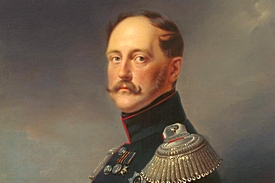
Born: Gatchina, 25 June (6 July) 1796
Died: St. Petersburg, 18 February (2 March) 1855
Reigned: 1825-1855
In the 1820s, the Grand Duke Nicholas Pavlovich (the future Emperor Nicholas I) experienced a dramatic change of fate. Theoretically, as the third son of the Emperor Paul, Nicholas did not have the slightest chance of ascending to the Russian throne and he therefore embarked on a military career, according to a strong Romanov tradition for younger sons. But his oldest brother, Alexander I and his wife, Elizabeth Alexeyevna, remained childless, and the second brother, Constantine, the future Viceroy of Poland, married a woman of non-royal blood and was forced to renounce all rights to the Russian crown. For the time being, it was decided to keep Constantine's renunciation a secret, which unexpectedly had serious consequences.
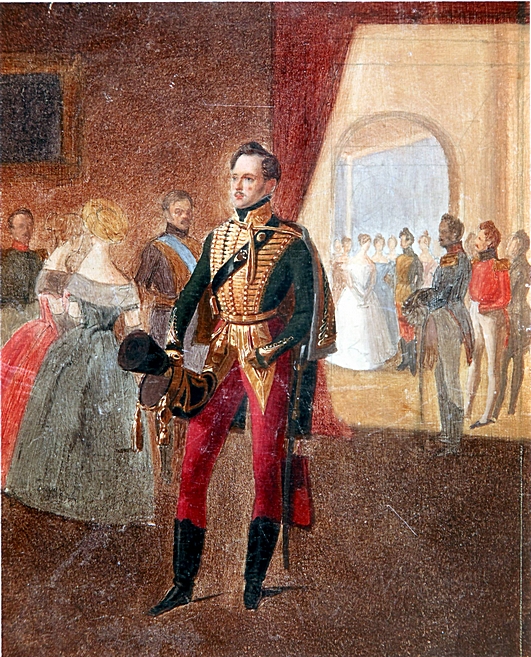
In 1825, Alexander I died suddenly in Taganrog in the south of Russia, and as soon as the news reached Petersburg, the governmental authorities and the Guard regiments took the oath to the new Emperor (as it seemed to them): Constantine. However, at this point, Constantine's previous renunciation was made public, and the troops were told they would have to take a new oath within several days, this time to Nicholas. A secret society, composed of liberal nobles, officers of the Guard and civilians, took advantage of the confusion to organize a revolt in the hope of forcing Nicholas I to give the country a constitution and civil liberties. On 14 December, the Decembrists (as they came to be called due to the timing of the revolt) consolidated their forces around the "Bronze Horseman" on Senatskaya Ploshchad (Senate Square) and presented their demands. The uprising was crushed, the ringleaders arrested, and after a lengthy investigation, five were unceremoniously hanged and the rest were exiled to hard labor in Siberia.
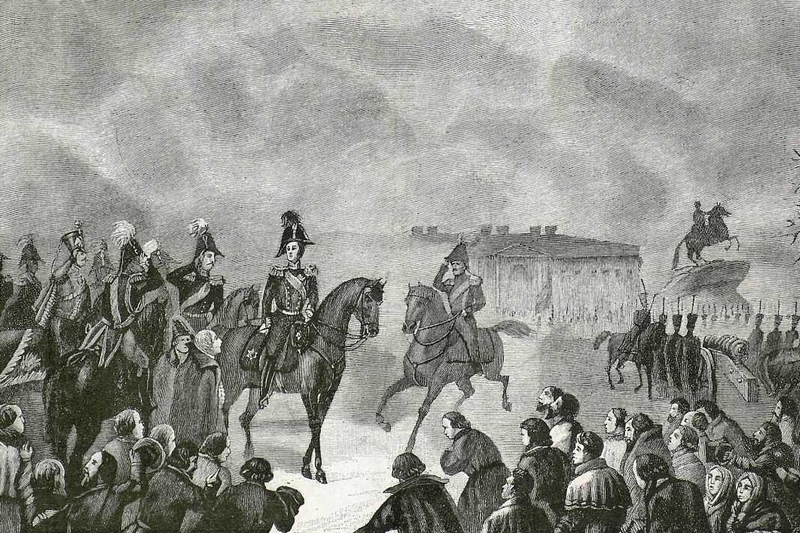
The unrest and danger of his first days as Emperor left a deep mark on Nicholas' character. He became a conservative, severe, and sometimes brutal monarch, who did not tolerate any sort of dissent. In everyday affairs, he was very demanding of his family, the court, and all who were in civil service, and he put a high priority on order and obedience. A military man by nature, Nicholas I especially trusted the military and installed them in all key positions in the country. He also reorganized many governmental departments along military lines. Many institutes of higher education were militarized and students had to wear uniforms, and a single, unified and very severe Charter was given to all universities in the country. Furthermore, the best students were no longer sent abroad for training, and tuition fees were increased, which dramatically reduced the number of students.
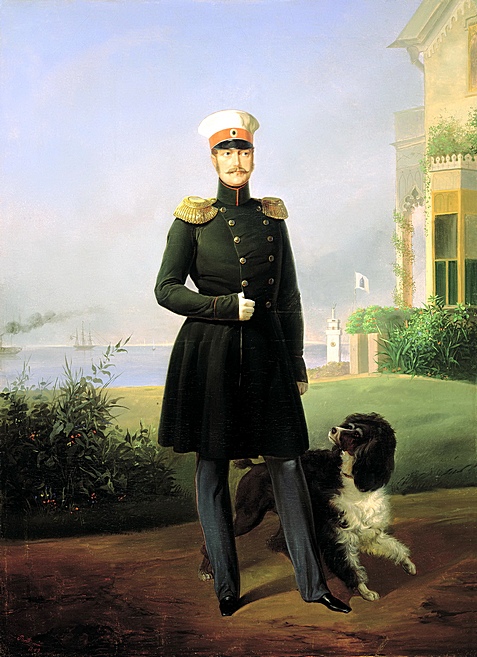
The most important political issue facing Russia was the question of serfdom. Nicholas I considered serfdom evil, but also believed that an immediate abolition of this peculiarly Russian institution would be even worse. A half-hearted measure for solving the peasant question was sought in the creation of "military settlements" and by encouraging landowners to voluntarily free their peasants under the condition that the peasants would carry out various tasks in the landlord's favor.
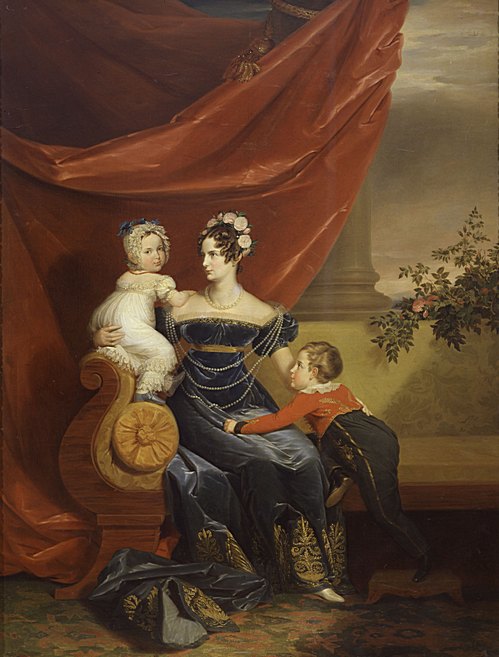
The emperor loved everything Russian, and insisted on Russian language and manners at court (until then, French, and sometimes German, was spoken). At the same time, Nicholas was fond of medieval chivalry, built palaces in Gothic style, and organized stylized jousting tournaments, in which participants wore original armor from the Imperial collection.
Despite the rather harsh political regime, literature and art flourished. This was the era during which the poets Pushkin and Lermontov worked, when Zhukovsky brilliantly translated foreign poetry, when Mikhail Glinka composed the first Russian operas, and Karl Bryullev and Alexander Ivanov painted their masterpieces. A plethora of construction projects contributed to the development of sculpture and architecture.
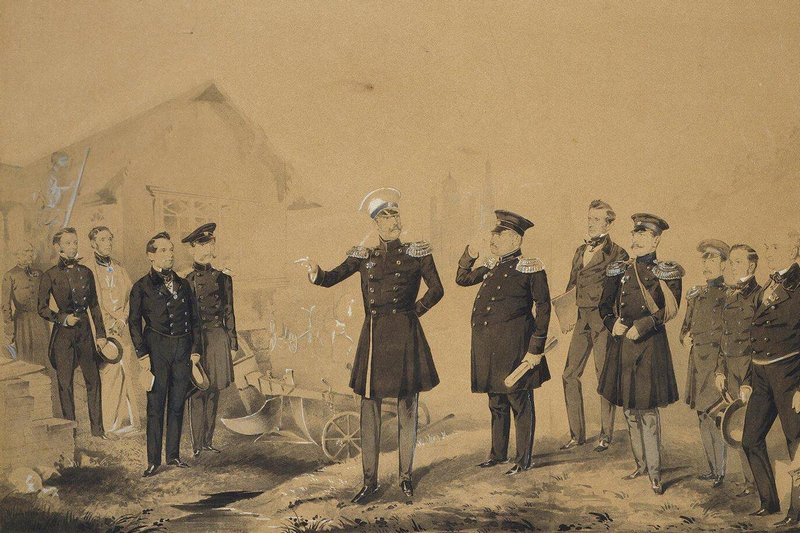
The Industrial Revolution gradually reached Russia. Railways, highways, and electromagnetic telegraph lines were built. However, technological advances in Russia still lagged behind the leading countries of Europe, and the Crimean War against Britain, France, and Turkey (1853-1855) made evident the technological and social backwardness of Russia, a country where the majority of the population were serfs. Notwithstanding the heroism of the soldiers and officers defending Sevastopol, Russia suffered a crushing defeat, and as he lay dying in 1855, Nicholas feared that the country which he was transferring to his son might be headed toward collapse.
Nicholas I was buried in the Cathedral of the Peter and Paul Fortress, and the fate of the country now lay in the hands of his son, the Tsar Reformer, Alexander II.

